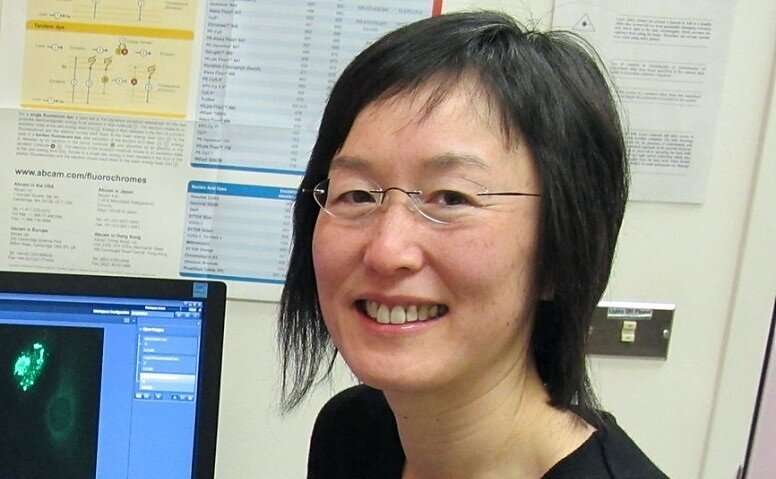Protein causes mutations that lead to breast cancer cell aggression

Like most scientists, University of Alberta biochemist Ing Swie Goping is curious. When her team discovered that a protein was associated with poor outcomes in breast cancer patients, she wanted to know why. Now, that curiosity has led to the discovery of a new mechanism for how certain breast cancers develop, which could one day lead to better treatment options.
In her previous research, Goping, a professor in the Faculty of Medicine & Dentistry, identified that the protein, BCL-2 interacting killer (BIK), was associated with relapses in breast cancer patients.
In a new study published in the journal Cell Death and Disease, she found that the problem lies with the cellular "self-destruct" process of apoptosis.
Cells in the human body regularly undergo apoptosis when a destruction sequence is triggered and a cell is killed. Normally a cell-death sequence runs to completion, causing DNA damage so severe that the cell kills itself. This is the desired outcome for cancer cells.
But in ER-positive breast cancer patients—those with breast cancers that have cells that grow in response to the hormone estrogen—when BIK is triggered, the sequence is not able to fully complete itself and instead undergoes what is termed "failed apoptosis," in which cell DNA is damaged to the point that mutations form, making the cancer cells more aggressive.
"The cell that has DNA damage then manages to repair itself, and becomes a worse adversary because it has mutations," said Goping, who is also a member of the Cancer Research Institute of Northern Alberta.
"Those mutations give it the repertoire to do whatever it can to evade therapy or to metastasize—whatever it needs to do to survive."
Goping plans to continue looking at BIK and gaining more information about how it functions in apoptosis. In better understanding the process, she hopes other treatments may be found that may not have been previously considered for ER-positive breast cancer patients.
More information: Vrajesh Pandya et al, BIK drives an aggressive breast cancer phenotype through sublethal apoptosis and predicts poor prognosis of ER-positive breast cancer, Cell Death & Disease (2020). DOI: 10.1038/s41419-020-2654-2


















